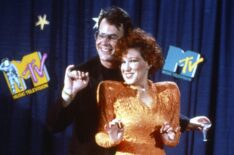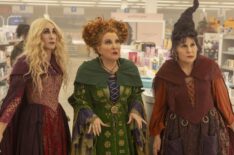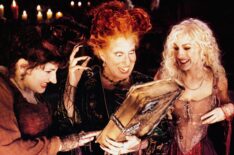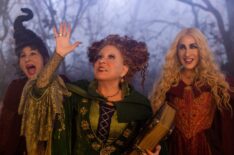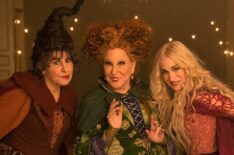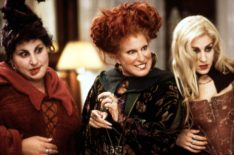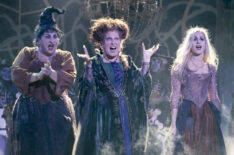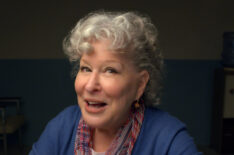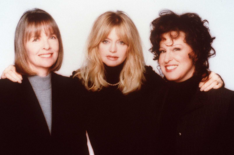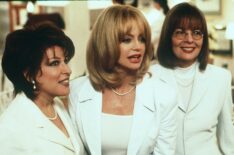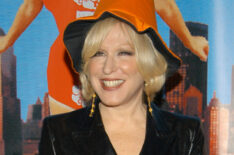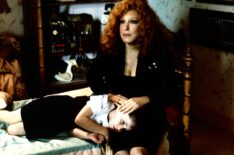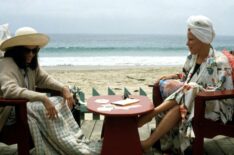Bette Midler
Credits

The Fabulous FourStream
Actor
Marilyn
Movie
2024
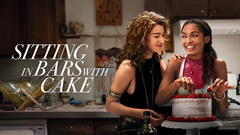
Sitting in Bars with CakeStream
Actor
Movie
2023
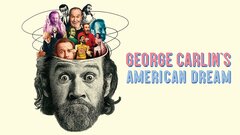
George Carlin's American DreamStream
Self
Movie
2022

George Carlin's American Dream
Self
Show
2022

Hocus Pocus 2Stream
Actor
Winifred Sanderson
Movie
2022

The 44th Annual Kennedy Center Honors
Self
Show
2021

CBS Mornings
Guest
News
2021

The Addams Family 2Stream
Voice
Grandma
Movie
2021

Coastal ElitesStream
Actor
Miriam Nessler
Series
2020
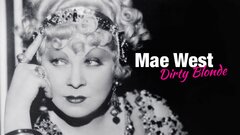
Mae West: Dirty BlondeStream
Executive Producer
Movie
2020

GMA3: What You Need to Know
Guest
Show
2020

Christmas Classics by the Fireplace
Music Performer
Show
2020

The PoliticianStream
Actor
Hadassah Gold
Series
2019

Today With Hoda & Jenna
Guest
Show
2019

What the World Needs Now: Words by Hal David
Host
Show
2019

The Addams FamilyStream
Voice
Grandma
Movie
2019

Today 3rd Hour
Guest
Show
2018

Murphy Brown
Guest Star
Caprice Caputowitz Feldman Morton
Show
2018

Christmas Classics by the Fireplace Vol. II
Music Performer
Show
2018

Freak Show
Actor
Muv
Movie
2017

Sunday Today With Willie Geist
Guest
Talk
2016

Celebrity PageStream
Guest
News
2016

På kongelig varieté i London
Music Performer
Show
2014

Royal Variety Performance 2014
Music Performer
Show
2014

Nightlife Television
Guest
Show
2014

Filmvärldens okända stjärna
Self
Show
2014

The Oscars
Music Performer
Show
2014

Late Night With Seth MeyersStream
Guest
Talk
2014

The Tonight Show Starring Jimmy FallonStream
Music Performer
Talk
2014

Stars
Actor
Show
2013

Bette Midler: Merry Christmas (Yule Log Edition)
Music Performer
Show
2013

David Sheehan's Holiday Movie Magic
Guest
Show
2012

Katie
Guest
Talk
2012

Live! With Kelly and Michael
Music Performer
Talk
2012

Inside Comedy
Actor
Docuseries
2012

CBS This Morning
Guest
Show
2012

Parental Guidance
Actor
Diane Decker
Movie
2012

The VoiceStream
Guest
Reality
2011

Bette Midler: The Showgirl Must Go On
Actor
Show
2010

Bette Midler: The Showgirl Must Go On
Director
Show
2010

Bette Midler: The Showgirl Must Go On
Producer
Show
2010

Access Hollywood Live
Guest
Show
2010

Lorraine
Guest
Show
2010

The Marriage Ref
Guest
Show
2010

Cats & Dogs: The Revenge of Kitty GaloreStream
Voice
Kitty Galore
Movie
2010

The Joy Behar Show
Guest
Show
2009

ES.TV
Guest
Show
2009

Alan Carr: Chatty Man
Guest Star
Show
2009

Late Night With Jimmy Fallon
Guest
Talk
2009

The Magic 7
Self
Show
2009

The WomenStream
Actor
Leah Miller
Movie
2008

The Graham Norton ShowStream
Guest
Talk
2007

Then She Found Me
Actor
Bernice
Movie
2007

Rachael Ray Show
Guest
Talk
2006

The Colbert Report
Guest
Talk
2005

Made in Hollywood
Guest
Series
2005

Higher Ground: A Hurricane Relief Benefit, Live From Lincoln Center
Guest
Show
2005

ET Canada
Guest
Show
2005

Project RunwayStream
Guest
Reality
2004

The Insider
Guest
Show
2004

The Stepford WivesStream
Actor
Bobbie Markowitz
Movie
2004

The Ellen DeGeneres Show
Guest
Talk
2003

The Ellen DeGeneres Show
Music Performer
Talk
2003

Imagine...
Guest
Show
2003

Jimmy Kimmel Live!Stream
Guest
Talk
2003
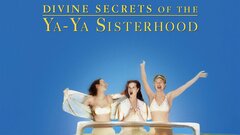
Divine Secrets of the Ya-Ya SisterhoodStream
Executive Producer
Movie
2002

Live With Regis and Kelly
Guest
Show
2001

Live With Regis and Kelly
Host
Show
2001

Bette
Actor
Bette
Show
2000

Bette
Executive Producer
Show
2000

Isn't She Great
Actor
Jacqueline Susann
Movie
2000

Drowning MonaStream
Actor
Mona Dearly
Movie
2000

Get Bruce!
Self
Movie
1999

Jackie's Back!
Self
Movie
1999

Fantasia 2000Stream
Voice
Hostess
Movie
1999

The View
Guest
Talk
1997

Bette Midler: Diva Las Vegas
Music Performer
Show
1997

That Old Feeling
Actor
Lilly Leonard
Movie
1997

Access HollywoodStream
Guest
News
1996

First Wives ClubStream
Actor
Brenda Cushman
Movie
1996
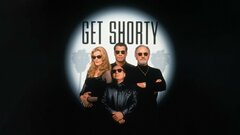
Get ShortyStream
Actor
Doris Saphron
Movie
1995

Entertainers: With Byron Allen
Guest
Show
1994

Extra
Guest
News
1994

The NannyStream
Guest Star
Series
1993
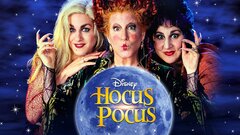
Hocus PocusStream
Actor
Winifred 'Winnie' Sanderson
Movie
1993
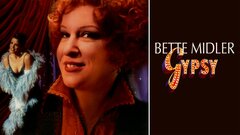
GypsyStream
Actor
Mama Rose
Movie
1993

The Tonight Show With Jay Leno
Guest
Talk
1992

Scenes From a Mall
Actor
Deborah Fifer
Movie
1991

For the Boys
Actor
Dixie Leonard
Movie
1991

Stella
Actor
Stella Claire
Movie
1990

The SimpsonsStream
Guest Voice
Herself
Series
1989

SeinfeldStream
Guest Star
Herself
Series
1989

Murphy Brown
Guest Star
Series
1988
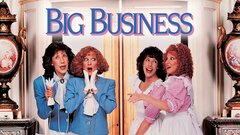
Big BusinessStream
Actor
Sadie Ratliff/Sadie Shelton
Movie
1988

Oliver & CompanyStream
Voice
Georgette
Movie
1988
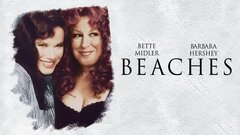
BeachesStream
Actor
Cecilia 'CC' Carol Bloom
Movie
1988

BeachesStream
Producer
Movie
1988

Quand les jumelles s'emmêlent
Actor
Movie
1988

The Lottery
Actor
Movie
1987
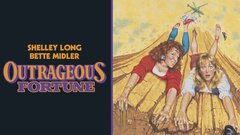
Outrageous FortuneStream
Actor
Sandy Brozinsky
Movie
1987

The Oprah Winfrey Show
Guest
Talk
1986
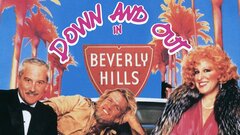
Down and Out in Beverly HillsStream
Actor
Barbara Whiteman
Movie
1986

Ruthless PeopleStream
Actor
Barbara Stone
Movie
1986

Jinxed!
Actor
Bonita Friml
Movie
1982

La Flambeuse
Actor
Movie
1982

Entertainment Tonight
Guest
News
1981

Divine Madness
Actor
Herself/The Divine Miss M
Movie
1980

Divine Madness
Writer
Movie
1980

CBS News Sunday MorningStream
Guest
News
1979
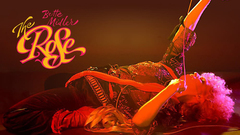
The Rose
Actor
Mary Rose Foster
Movie
1979

Bette Midler: Ol' Red Hair Is Back
Host
Show
1977

Good Morning America
Guest
News
1975

Saturday Night LiveStream
Music Performer
Series
1975

The Thorn
Actor
Virgin Mary
Movie
1973

Parkinson
Guest
Show
1971
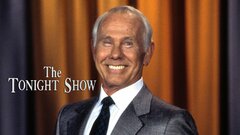
The Tonight Show Starring Johnny CarsonStream
Guest
Talk
1962

Today
Guest
News
1952

Today
Music Performer
News
1952
News aboutBette Midler

Remembering the First MTV VMAs, 40 Years Later — Bette Midler & Dan Aykroyd Hosted?!
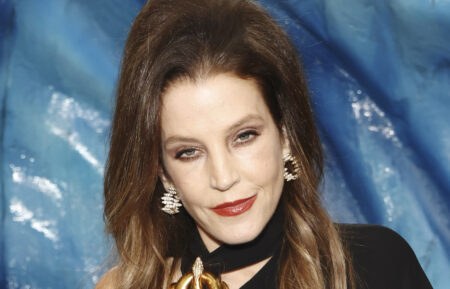
Lisa Marie Presley Dies: Ex-Husband Nicolas Cage, John Travolta, Bette Midler & More Pay Tribute
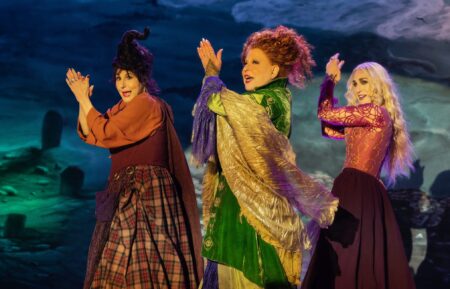
Spoiler Alert
Could There Be a ‘Hocus Pocus 3’ on the Horizon?
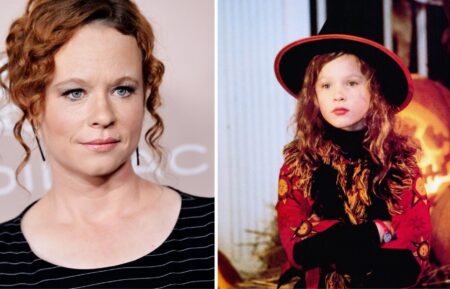
Thora Birch Reveals Why She Didn’t Return for ‘Hocus Pocus 2’
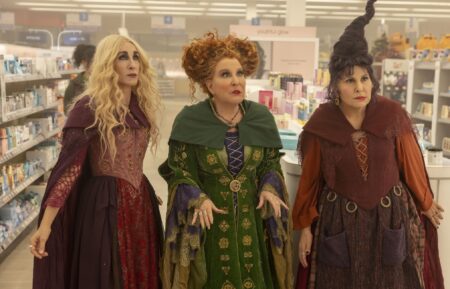
Preview
‘Hocus Pocus 2’ Director Teases ‘Surreal’ Return & New Musical Moment
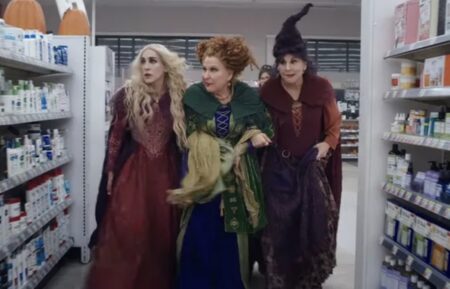
‘Hocus Pocus 2’ Trailer: See Bette Midler, Sarah Jessica Parker & Kathy Najimy Run Amok (VIDEO)
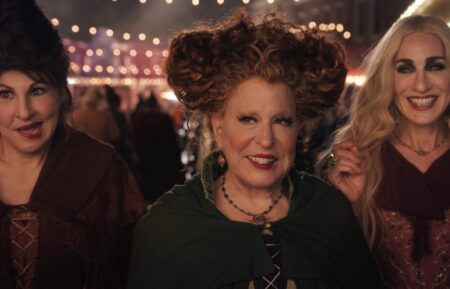
Fall Preview
How ‘Hocus Pocus 2’ Captures Nostalgia of the Original Nearly 30 Years Later
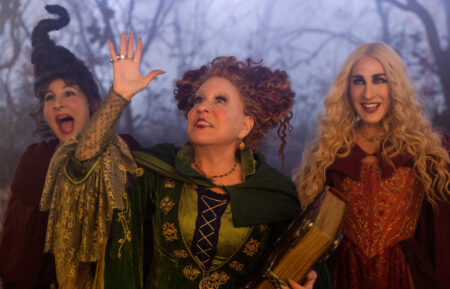
‘Hocus Pocus 2’: Disney+ Reveals Trailer and Release Date (VIDEO)
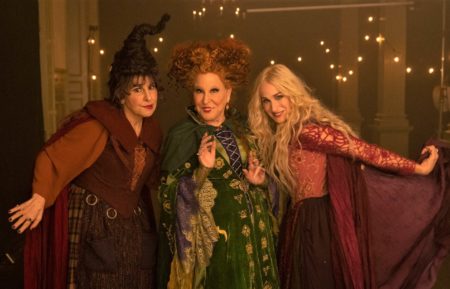
‘Hocus Pocus 2’ Release Date, First Footage Revealed by Disney+
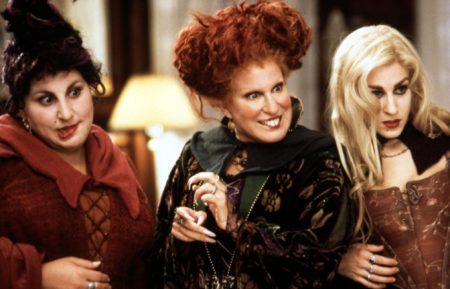
‘Hocus Pocus 2’ to Debut on Disney+ in 2022 With the Original Cast

15 Categories to Watch at the 2020 Creative Arts Emmy Awards
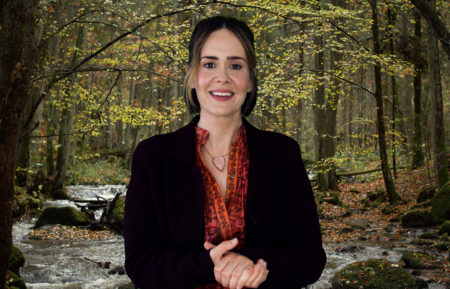
Review
Roush Review: Seriocomic Confessions From 5 ‘Coastal Elites’
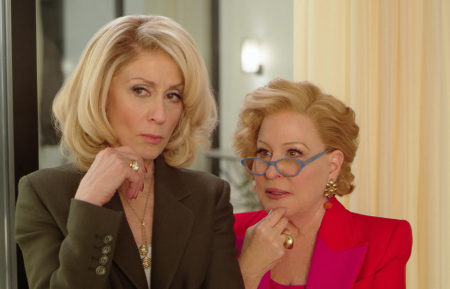
Preview
Bette Midler Shines as ‘Bulldog’ Hadassah Gold in ‘The Politician’ Season 2

Payton Hobart Runs for Senate in ‘The Politician’ Season 2 First Look (PHOTOS)
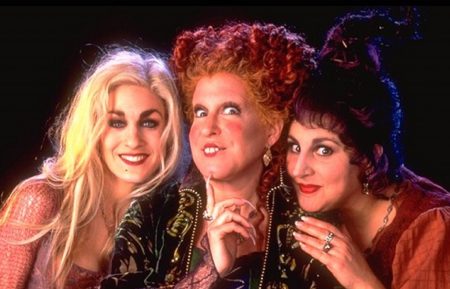
A New ‘Hocus Pocus’ Movie Is in the Works at Disney+
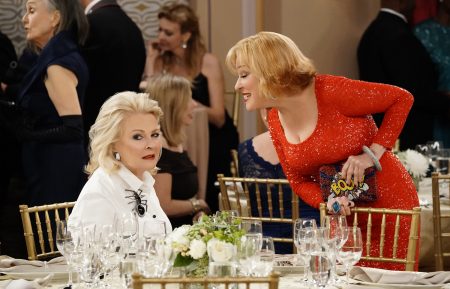
Preview
‘Murphy Brown’ Creator Diane English Teases Bette Midler’s Return as Caprice



